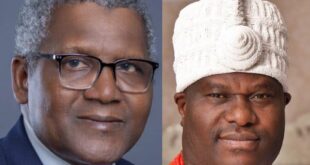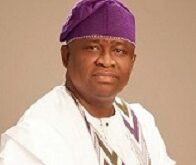BY ABU-SATAR HAMED
As President Bola Ahmed Tinubu marked two years in office, Nigerians are taking stock of a tenure that has so far been defined more by economic hardship than by the “Renewed Hope” agenda that helped sweep him into Aso Rock.
Amid a backdrop of rising inflation, fuel subsidy removal, currency devaluation, and persistent insecurity, Tinubu’s call for patience is wearing thin among many citizens who are struggling daily to survive.
In May 2023, Tinubu assumed office as Nigeria’s 16th president, inheriting a nation already strained under the economic weight of President Muhammadu Buhari’s eight-year rule. Tinubu’s campaign was built on continuity, but also promised reform and revitalization. His slogan, “Renewed Hope”, raised expectations that his administration would implement bold policies to boost productivity, create jobs, and stabilize the economy.
However, almost immediately after taking office, Tinubu announced the removal of the fuel subsidy – a decision that sent shockwaves through the economy. While policy experts and international financial institutions applauded the move as a necessary step to reduce government spending and attract investment, its implementation was abrupt and poorly cushioned. Fuel prices tripled within days, triggering a chain reaction that increased the cost of transportation, food, and other essential goods.
Coupled with the subsidy removal was the floating of the naira. This move, aimed at harmonizing exchange rates and curbing forex arbitrage, instead sent the naira tumbling to historic lows. The result: a country heavily reliant on imports faced surging prices on nearly every front. Inflation crossed 30% in early 2025 – the highest in nearly three decades – while food inflation soared beyond 40%.
The Central Bank, under new leadership, introduced monetary tightening measures, but these did little to ease the pressure on ordinary Nigerians. Businesses, especially small and medium enterprises, faced a credit crunch, and unemployment rose as companies struggled to stay afloat.
While the economy reeled, the security situation remained precarious. Banditry in the North West, insurgency in the North East, farmer-herder clashes in the Middle Belt, South West and separatist agitations in the South East persisted, undermining national stability and economic productivity.
In the face of all this, Tinubu’s government has been criticized for being reactive rather than proactive. His cabinet took months to form, and several key reforms have lagged in implementation or lacked transparency.
For the average Nigerian, daily life under Tinubu’s government has become a battle for survival. Transportation costs have skyrocketed, food has become unaffordable for many, and unemployment continues to climb. The government’s cash transfer programmes and palliative packages have been criticized for being insufficient, poorly coordinated, and riddled with inefficiency.
Amid this reality, Tinubu continues to ask Nigerians to be patient. In speeches, he has promised that “tough decisions” are necessary for long-term gain. But for many, patience is no longer a virtue – it is a forced state of existence.
As one market trader in Lagos put it, “How can we be patient when we cannot feed our children?”
To be fair, not all has been bleak. Tinubu’s administration has secured multibillion-dollar investment pledges from international firms, and the government claimed to be laying a foundation for future industrialization. Efforts have been made to address power sector bottlenecks and to digitize public services. However, these gains are long-term in nature and have yet to materially impact the daily lives of citizens.
President Tinubu faces a steep uphill battle. As he enters the second half of his term, the demand for tangible results will only grow louder. Nigerians are not only measuring his presidency by economic metrics, but by the promise of dignity, security, and hope that seems increasingly elusive.
To regain public trust, Tinubu must pivot from rhetoric to delivery. Subsidy reforms must be matched with real investment in public transport and food supply chains. Security must improve not just on paper but in people’s lives. Jobs must be created, not just discussed.
In the words of one analyst, “It’s not about asking Nigerians to be patient anymore – it’s about giving them something to be patient for.”
The truth must be said, two years in President Bola Tinubu’s tenure is defined by hardship, mounting frustration, and dwindling public goodwill.
While structural reforms may pay dividends in the future, the immediate pain felt by Nigerians cannot be overlooked or dismissed with appeals for patience.
The clock is ticking, and unless the government can translate policy into relief, the gap between leadership and the led will continue to widen – with unpredictable consequences for Nigeria’s fragile democracy.
*Abu-Satar Hamed writes for StarTrend Int’l magazine and online platform.
 Startrend International Magazine For Your Latest News And Entertainment Gists
Startrend International Magazine For Your Latest News And Entertainment Gists





